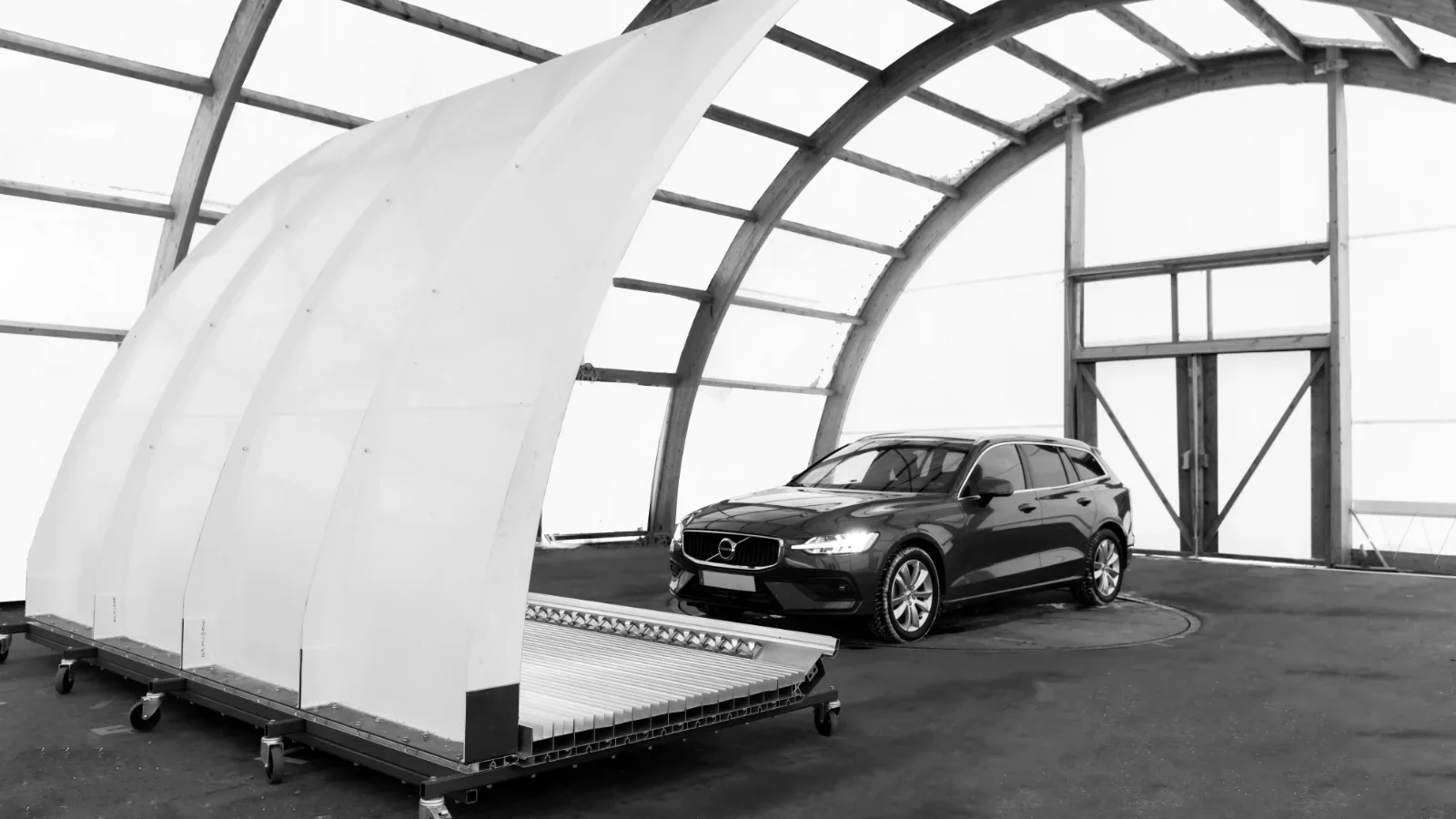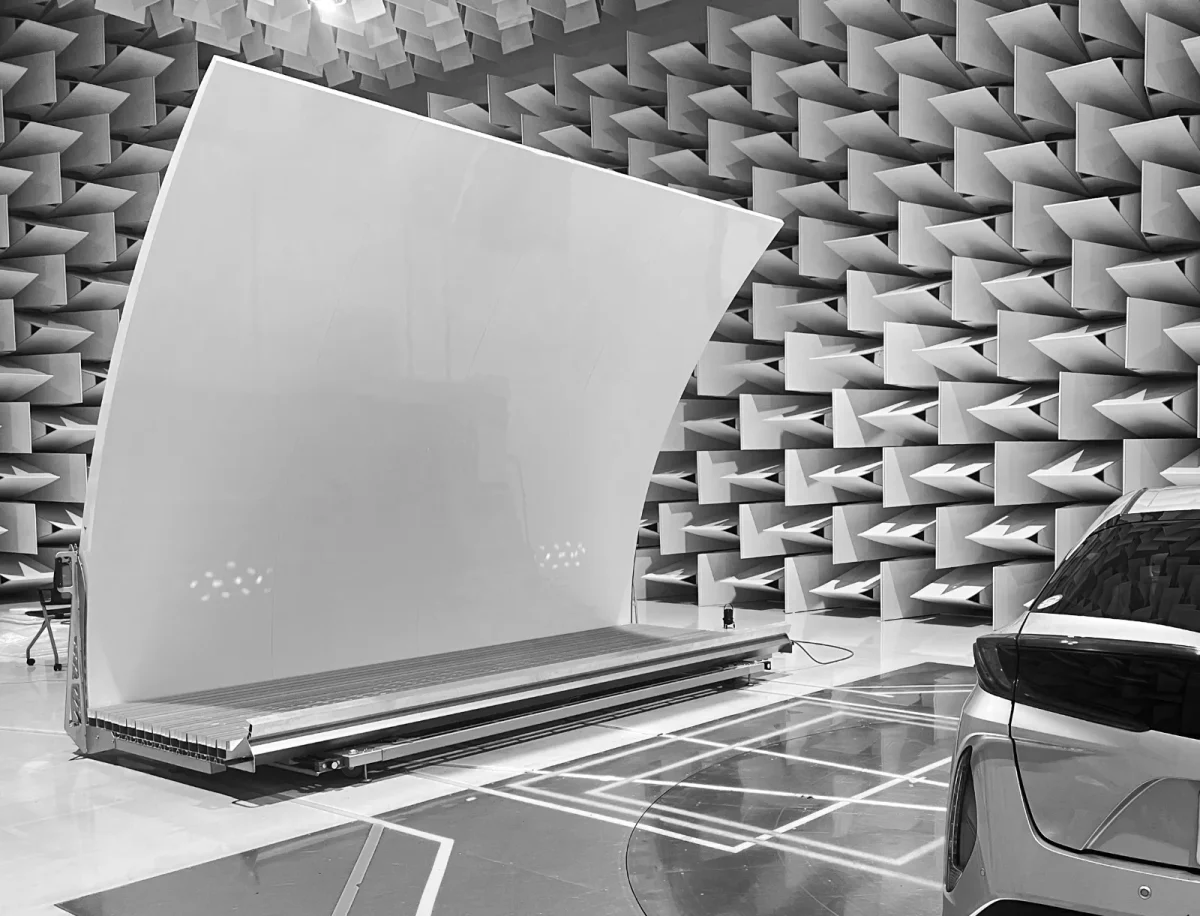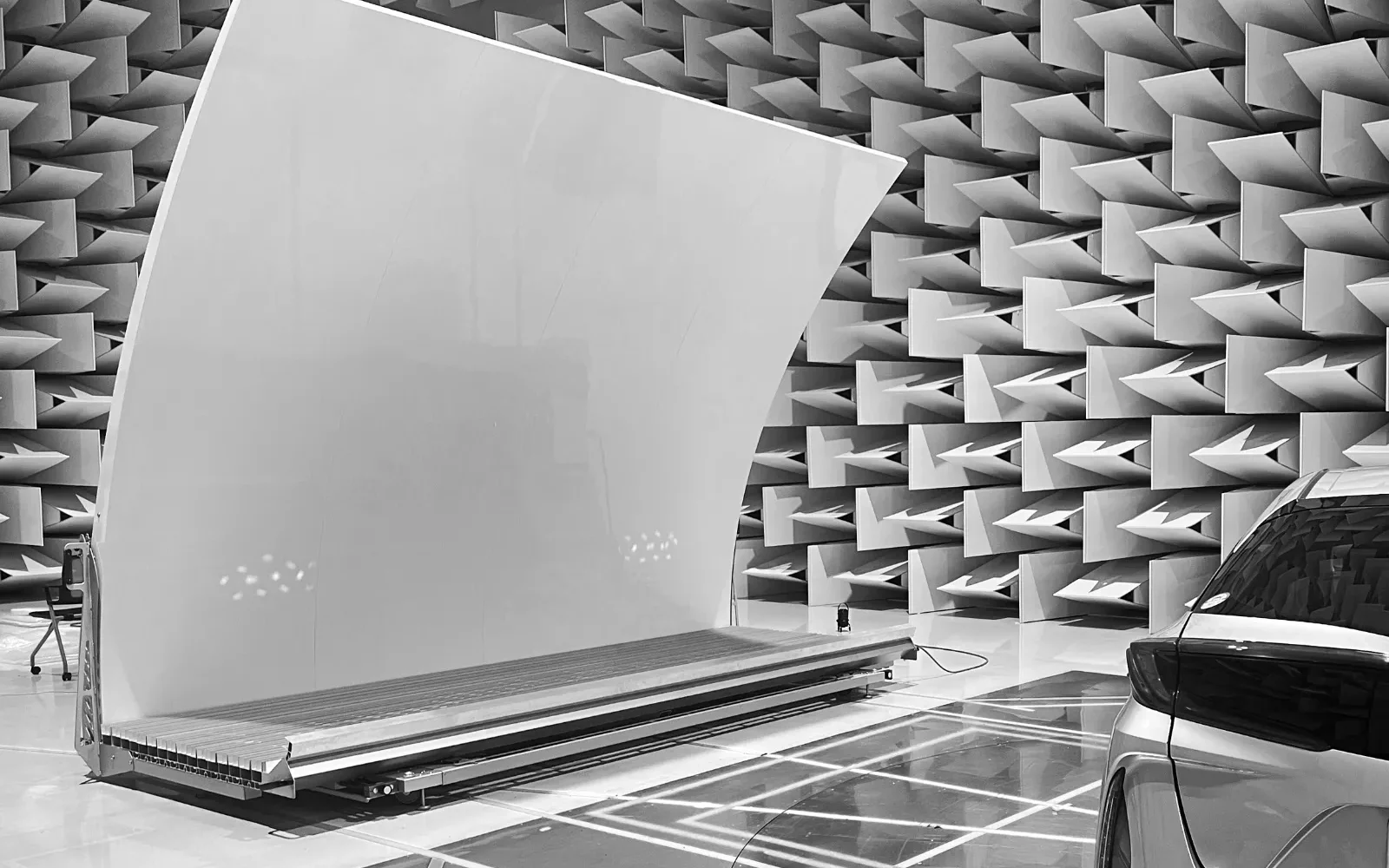2023-11-01
This is a summary based on the article “A Cost-Effective Method to Measure Vehicle Antenna Radiation Patterns and Data Throughput” published as a cover feature in the well-reputed Microwave Journal. The article dives into the ideas and technology behind the RanLOS OTA test system and how it enables test engineers to measure both over-the-air (OTA) data throughput and antenna radiation patterns in a smart and cost-efficient way.
In an era where vehicles are increasingly reliant on reliable radio communication, for safety to software updates and entertainment services, optimizing antenna performance and connectivity has become pivotal. Even so, only a handful of vehicle manufacturers around the world have invested in test systems, since conventional systems are complex, and require special facilities and large investments. RanLOS offers a cost-effective and easy-to-use alternative solution.
The challenge of testing antenna systems
Vehicle manufacturers have historically relied on drive tests on public roads or test tracks, to evaluate the performance of the vehicle’s communication system, but this method has several limitations. Drive tests represent real-world conditions simply because they are performed in the real world. However, they are not repeatable due to the changing environment and disturbances, which makes it difficult to assess the communication system’s performance accurately. Additionally, these tests can only be conducted on nearly finished vehicles.
To overcome these challenges, alternative approaches have been proposed, such as simulating the environment in a laboratory setup. This involves placing multiple antennas in specific configurations around the vehicle and feeding them with signals to mimic real-world conditions. However, determining which environments to simulate and ensuring the worst-case scenario is accurately represented, remain significant challenges.
In 2000, Professor Per-Simon Kildal founded Bluetest to address these challenges by developing reverberation chambers for testing mobile devices in rich isotropic multipath (RIMP) environments. These chambers replicated complex multipath scenarios but didn’t account for line-of-sight (LOS) conditions, essential for testing point-to-point communication links. To address this gap RanLOS was established in 2016, with the aim to develop cost-effective and smart solutions for testing LOS edge environments. Professor Kildal’s hypothesis was that all real environments could be described as something in between the two edge environments (RIMP and LOS). Hence, devices tested with good results in both edge environments would excel in real-world scenarios.
RanLOS test system and applications
The RanLOS compact antenna test range (CATR) system consists of a cylindrical reflector with a linear array of dual-polarized antennas, creating a plane wave (far-field conditions) at a short distance. The test system is controlled by RanLOS software that interfaces with measurement instruments and turntables. Supported instruments include vector network analyzers (VNAs) and communication testers. The test system’s feed array is easily interchangeable, covering the 0.7 to 6 GHz frequency band, and suitable for vehicular communication. Higher frequencies are on the roadmap. The test system is portable and can easily be rolled into existing EMC chambers.

Measurements that can be performed:
- Antenna Radiation Pattern Measurements
The RanLOS OTA test system allows for the measurement of antenna radiation patterns. By placing the vehicle on a turntable in front of the reflector, the system can replicate the LOS edge environment. This enables the measurement of far-field parameters, such as the antenna gain pattern of a vehicle-mounted antenna. The measurements can be performed in minutes, providing a practical engineering tool for assessing antenna performance. These types of measurements require access to the antenna port of the antenna to be measured, and a Vector Network Analyzer (VNA). - Connectivity Measurements
In modern vehicles, integrating antennas with radio modules can make direct access to antenna ports challenging. In such cases, OTA measurements can be performed by connecting a communication tester to the RanLOS system. This allows for the assessment of characteristics like data throughput. RanLOS system can also be used in conjunction with a dynamometer enabling the vehicle to be in full operation. Then, eventual influence on the communication link caused by disturbances from the vehicle’s electronic control units can be evaluated. Measurements can also show communication performance for different vehicle orientations, giving valuable insight into best- and worst-case communication distances. Identifying these variations is crucial for ensuring consistent connectivity, especially in safety-critical systems.
The RanLOS OTA test system is a unique and cost-effective solution to measure antenna performance and connectivity for vehicles. Its mobility and compatibility with existing EMC chambers make it a valuable engineering tool. It can be used throughout the whole product development process to optimize antenna performance and connectivity quality.
RanLOS OTA test system vs
NF-FF test facility
The measurements show that the results from the RanLOS setup are a reliable solution compared to bigger, more expensive, test facilities. These measurements were done during SIVERT - a FFI-Vinnova project.

Sources and more from Microwave Journal:
- Frequency Matters, Sept 15: Automotive Issue: Watch this episode here.
- Digital Edition of the September issue with RanLOS as a cover feature. Read here.
- RanLOS article “A Cost-Effective Method to Measure Vehicle Antenna Radiation Patterns and Data Throughput” in Microwave Journal can also be found here.
Want to learn more?
Make sure to follow RanLOS at LinkedIn, have a look our latest news here or reach out to our employees.
Other news & articles

The Cost-Effective Benefits of OTA Testing for Automakers
By running OTA tests regularly, automakers can identify and fix issues before they become major problems. This helps to reduce the cost of production, speed up time to market and

EP4: Executive Talks by RanLOS – Cover feature and latest news
In episode #4 of Executive Talks by RanLOS we’ll walk you through some highlights from the cover feature of Microwave Journal, the foremost magazine in our industry, together with the

RanLOS receives an order from a global car manufacturer
RanLOS has achieved a significant milestone by securing an order from a European car manufacturer in the premium segment. The sale means that RanLOS will supply both hardware and software




